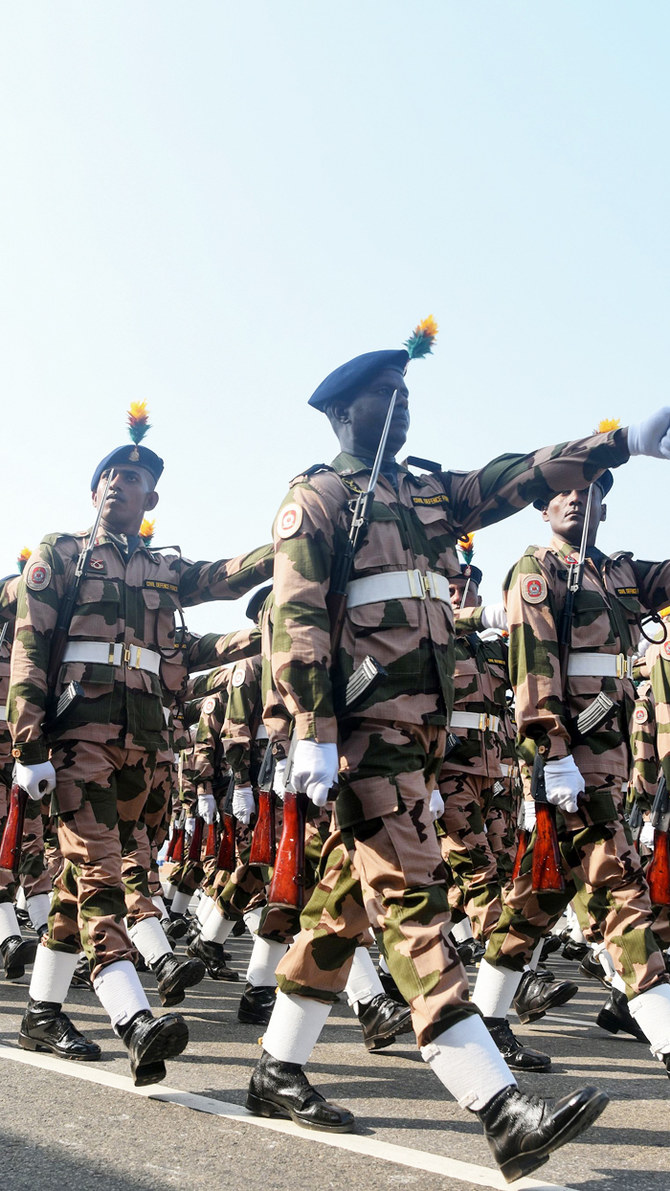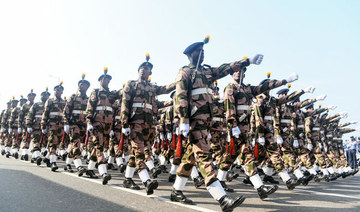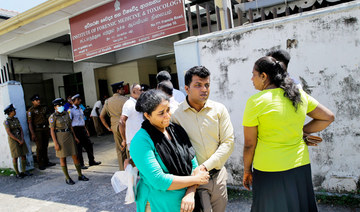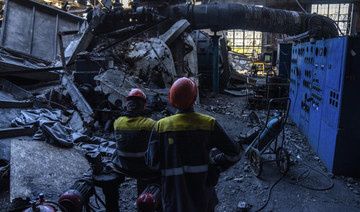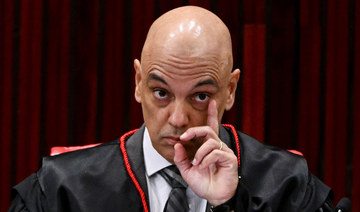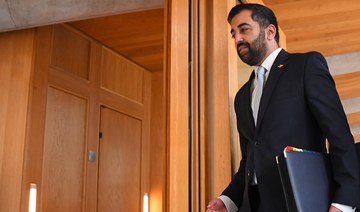COLOMBO, Sri Lanka: Sri Lanka’s president gave the military sweeping police powers starting Tuesday in the wake of the Easter bombings that killed nearly 300 people, while officials disclosed that intelligence agencies had warned weeks ago of the possibility of an attack by the radical Muslim group blamed for the bloodshed.
The suicide bombings struck three churches and three luxury hotels Sunday in the island nation’s deadliest violence since a devastating civil war ended in 2009. The government shut down some social media, armed security forces patrolled the largely deserted, central streets in the capital of Colombo, and a curfew went into effect.
The military was given a wider berth to detain and arrest suspects — powers that were used during the civil war but withdrawn when it ended.
Prime Minister Ranil Wickremesinghe said he feared the massacre could unleash instability and he vowed to “vest all necessary powers with the defense forces” to act against those responsible.
Adding to the tension, three unexploded bombs blew up Monday inside a van parked near one of the stricken churches as police were trying to defuse them, sending pedestrians fleeing in panic. No injuries were reported. Dozens of detonators were discovered near Colombo’s main bus depot, but officials declined to say whether they were linked to the attacks.
The government blocked access to Facebook, WhatsApp and Instagram after the blasts, creating confusion and doing little to reassure residents and visitors that the danger had passed.
A nationwide state of emergency was scheduled to begin at midnight Monday (0630 GMT; 2:30 p.m. EDT) the president’s office said, following the attacks that killed at least 290 people, with more than 500 wounded, according to police spokesman Ruwan Gunasekara. The three stricken hotels and one of the churches, St. Anthony’s Shrine, are frequented by tourists, and dozens of foreigners were among the dead.
Tourism Minister John Amaratunga said 39 foreigners were killed, although the foreign ministry put out a different figure, saying the number of dead was 31.
The US State Department confirmed that at least four Americans were among the dead and several others were seriously wounded, but it did not release any identities. The Sri Lankan government said other foreigners killed were from the UK, Bangladesh, China, India, France, Japan, the Netherlands, Portugal, Saudi Arabia, Spain, Turkey and Australia.
A national day of mourning was declared for Tuesday.
International intelligence agencies had warned that the little-known group, National Thowfeek Jamaath, was planning attacks, but word apparently didn’t reach the prime minister’s office until after the massacre, exposing the continuing political turmoil in the highest levels of the Sri Lankan government.
Health Minister Rajitha Senaratne said the intelligence agencies began issuing the warnings on April 4; the defense ministry wrote to the police chief with information that included the group’s name; and police wrote April 11 to the heads of security of the judiciary and diplomatic security division.
President Maithripala Sirisena, who was out of the country Sunday, had ousted Prime Minister Ranil Wickremesinghe in October and dissolved the Cabinet. The Supreme Court later reversed his actions, but the prime minister has not been allowed into meetings of the Security Council since October, which meant he and his government were in the dark about the intelligence.
It was not immediately clear what action, if any, was taken after the threats. Authorities said they knew where the group trained and had safe houses, but did not identify any of the suicide bombers, whose bodies were recovered, or the two dozen other suspects taken into custody.
All the bombers were Sri Lankans, but authorities said they strongly suspected foreign links, Senaratne said.
Also unclear was a motive. The history of Buddhist-majority Sri Lanka, a country of 21 million including large Hindu, Muslim and Christian minorities, is rife with ethnic and sectarian conflict.
In the civil war, the Tamil Tigers, a powerful rebel army known for using suicide bombers, was crushed by the government and had little history of targeting Christians. While anti-Muslim bigotry fed by Buddhist nationalists has swept the country recently, there is no history of Islamic militancy. Its small Christian community has seen only scattered incidents of harassment.
Two other government ministers also alluded to advance knowledge. Telecommunications Minister Harin Fernando tweeted: “Some intelligence officers were aware of this incidence. Therefore there was a delay in action. Serious action needs to be taken as to why this warning was ignored.” He said his father had heard of a possible attack as well and had warned him not to enter popular churches.
Mano Ganeshan, the minister for national integration, said his security officers had been warned by their division about the possibility that two suicide bombers would target politicians.
Cardinal Malcolm Ranjith, the archbishop of Colombo, said the attacks could have been thwarted.
“We placed our hands on our heads when we came to know that these deaths could have been avoided. Why this was not prevented?” he said.
The coordinated blasts took place in the morning at St. Anthony’s and the Cinnamon Grand, Shangri-La and Kingsbury hotels in Colombo, as well as the two churches outside Colombo. They collapsed ceilings and blew out windows, killing worshippers and hotel guests, and leaving behind scenes of smoke, soot, blood, broken glass, screams and wailing alarms.
A few hours later, two more blasts occurred just outside Colombo, one at a guesthouse where two people were killed, the other near an overpass, said Brig. Sumith Atapattu, a military spokesman.
Also, three police officers were killed while searching a suspected safe house on the outskirts of Colombo when its occupants apparently detonated explosives to prevent arrest, authorities said.
A pipe bomb with 50 kilograms (110 pounds) of explosives was found and defused late Sunday on a road to the international airport, said air force Group Capt. Gihan Seneviratne. It was powerful enough to have caused damage in a 400-meter (400-yard) radius, he said.
A morgue worker in Negombo, outside Colombo, where St. Sebastian’s Church was targeted, said many bodies were hard to identify because of the blasts. He spoke on condition of anonymity because he was not authorized to talk to the media.
Nilantha Lakmal, a 41-year-old businessman who took his family to St. Sebastian’s for Mass, said they all escaped unharmed, but he remained haunted by images of bodies being taken from the sanctuary.
At the Shangri-La Hotel, one witness said “people were being dragged out” after the blast.
“There was blood everywhere,” said Bhanuka Harischandra, 24, of Colombo, a founder of a tech marketing company who was going to the hotel for a meeting. “People didn’t know what was going on. It was panic mode.”
The scale of the violence recalled the worst days of the civil war, when the Tamil Tigers, from the ethnic Tamil minority, sought independence from the Sinhalese-dominated country. The Sinhalese are largely Buddhist. The Tamils are Hindu, Muslim and Christian. Sri Lanka, off the southern tip of India, is about 70% Buddhist. In recent years, tensions have soared between hard-line Buddhist monks and Muslims.
Two Muslim groups in Sri Lanka condemned the church attacks, and Pope Francis expressed condolences at the end of his traditional Easter blessing in Rome. The United Nations’ most powerful body, the Security Council, also denounced the “heinous and cowardly terrorist attacks.”
US Secretary of State Mike Pompeo said in Washington that he spoke to the prime minister and offered assistance. Later, the FBI said it was helping with the investigation.
“This is America’s fight, too,” he said. “We also stand with millions of Sri Lankans who support the freedom of their fellow citizens to worship as they please. We take confidence in knowing that not even atrocities like this one will deter them from respecting religious freedom.”
Sri Lanka military gets special powers after deadly bombings
Sri Lanka military gets special powers after deadly bombings
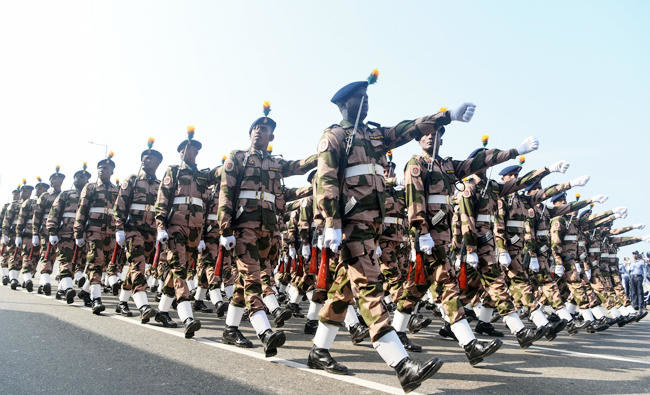
- Two Muslim groups in Sri Lanka condemned the church attacks, and Pope Francis expressed condolences at the end of his traditional Easter blessing in Rome
- A pipe bomb with 50 kilograms (110 pounds) of explosives was found and defused late Sunday on a road to the international airport, said air force Group Capt. Gihan Seneviratne
Anti-war protesters leave USC after police arrive, while Northeastern ceremony proceeds calmly
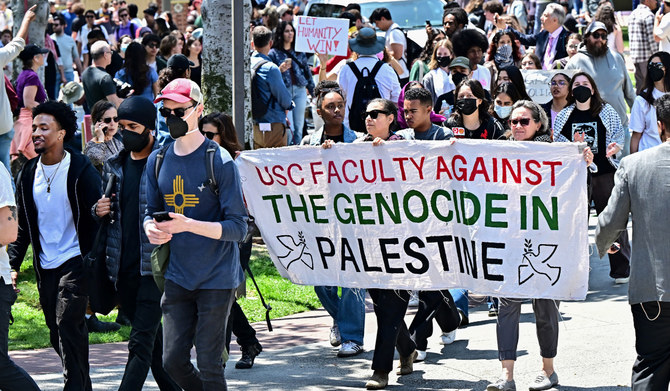
- Israel has killed more than 34,000 Palestinians, according to Gaza’s Health Ministry
WASHINGTON: Students protesting the war in Gaza abandoned their camp at the University of Southern California early Sunday after being surrounded by police and threatened with arrest, while Northeastern University’s commencement began peacefully at Boston’s Fenway Park.
Developments in both places were being watched closely following scores of arrests last month — 94 people at USC in Los Angeles and about 100 at Northeastern in Boston.
Dozens of Los Angeles Police Department officers arrived about 4 a.m. at USC to assist campus safety officers. The university had warned of arrests on social media and in person. Video showed some protesters packing up and leaving, while officers formed lines to push others away from the camp as it emptied out. The university said there were no reports of any arrests.
USC President Carol Folt said it was time to draw a line because “the occupation was spiraling in a dangerous direction” with areas of campus blocked and people being harassed.
“The operation was peaceful,” Folt wrote in an update. “Campus is opening, students are returning to prepare for finals, and commencement set-up is in full swing.”
USC earlier canceled its main graduation ceremony while allowing other commencement activities to continue.
At the Northeastern commencement Sunday, some students waved small Palestinian and Israeli flags, but were outnumbered by those waving the flags of India and the US, among others. Undergraduate student speaker Rebecca Bamidele drew brief cheers when she called for peace in Gaza.
The Associated Press has tallied about 2,500 people arrested at about 50 campuses since April 18, based on its reporting and statements from universities and law enforcement.
Arrests continued apace over the weekend. At the University of Virginia, there were 25 arrests Saturday for trespassing after police clashed with protesters who refused to remove tents. At the Art Institute of Chicago campus, police cleared a pro-Palestinian encampment hours after it was set up Saturday and arrested 68 people, saying they would be charged with criminal trespass.
ARRESTS IN VIRGINIA
In Charlottesville, Virginia, student demonstrators began their protest on a lawn outside the school chapel Tuesday. Video on Saturday showed police in riot gear and holding shields lined up on campus, while protesters chanted “Free Palestine.”
As police moved in, students were pushed to the ground, pulled by their arms and sprayed with a chemical irritant, Laura Goldblatt, an assistant professor who has been helping the demonstrators, told The Washington Post. The university said protesters were told that tents were banned under school policy and were asked to remove them.
Virginia Attorney General Jason Miyares told Fox News on Sunday the police response was justified because students had been warned repeatedly to leave, were violating the school’s conduct code, and that outsiders who were not students provided protesters with supplies like wooden barriers.
“We’ve seen folks that are not students show up in riot gear with bull horns to direct the protesters on how to flank our officers,” Miyares said.
He said some had put bear spray into water bottles and thrown them at officers.
It was the latest clash in weeks of protests and tension at US colleges and universities.
Tent encampments of protesters urging universities to stop doing business with Israel or companies they say support the war in Gaza have spread in a student movement unlike any other this century. Some schools reached agreements with protesters to end the demonstrations and reduce the possibility of disrupting final exams and commencements.
DEMONSTRATIONS AMID COMMENCEMENT
The University of Michigan was among the schools bracing for protests during commencement this weekend, as were Indiana University, Ohio State University and Northeastern. More ceremonies are planned in the coming weeks.
In Ann Arbor, there was a protest at the beginning of the event at Michigan Stadium. About 75 people, many wearing traditional Arabic kaffiyehs along with their graduation caps, marched up the main aisle toward the stage.
They chanted “Regents, regents, you can’t hide! You are funding genocide!” while holding signs, including one that read: “No universities left in Gaza.”
Overhead, planes pulled banners with competing messages. “Divest from Israel now! Free Palestine!” and “We stand with Israel. Jewish lives matter.”
Officials said no one was arrested, and the protest didn’t seriously interrupt the nearly two-hour event, attended by tens of thousands of people, some of them waving Israeli flags.
OTHER PROTESTS CONTINUE
At Indiana University, protesters urged supporters to wear their kaffiyehs and walk out during remarks by school President Pamela Whitten on Saturday evening. The Bloomington campus designated a protest zone outside Memorial Stadium, where the ceremony was held.
At Princeton University in New Jersey, 18 students began a hunger strike to try to push the university to divest from companies tied to Israel. Students at other colleges, including Brown and Yale, launched similar hunger strikes this year before the more recent wave of demonstrations.
The protests stem from the conflict that started Oct. 7 when Hamas militants attacked southern Israel, killing about 1,200 people, mostly civilians, and taking roughly 250 hostages. Vowing to destroy Hamas, Israel launched an offensive in Gaza that has killed more than 34,500 Palestinians, about two-thirds of them women and children, according to the Health Ministry in the Hamas-ruled territory. Israeli strikes have devastated the enclave and displaced most of its inhabitants.
China’s Xi in France for Macron talks on Ukraine
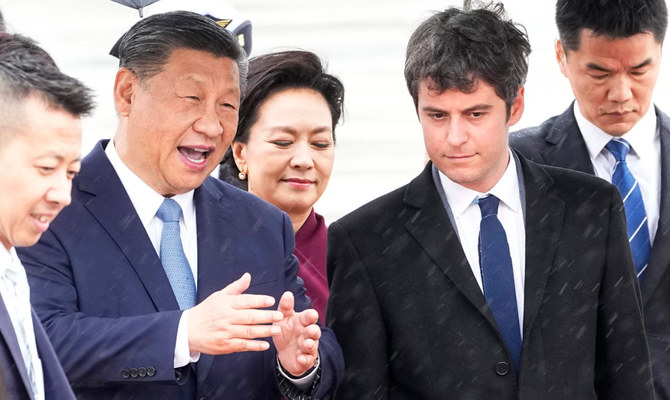
- Tuesday will see Macron take Xi to the Pyrenees mountains to an area he used to visit as a boy for a day of less public talks
PARIS: Chinese President Xi Jinping arrived in France Sunday on a state visit hosted by Emmanuel Macron where the French leader will seek to warn his counterpart against backing Russia in the conflict over Ukraine.
Xi’s arrival for the visit marking 60 years of diplomatic relations between France and China heralded the start of his first trip to Europe since 2019, which will also see him visit Serbia and Hungary.
But Xi’s choice of France as the sole major European power to visit indicates the relative warmth in Sino-French relations since Macron made his own state visit to China in April 2023 and acknowledges the French leader’s stature as an EU powerbroker.
The leader of the one-party Communist state of more than 1.4 billion people, accompanied by his wife Peng Liyuan, was welcomed under umbrellas at a drizzly Paris Orly airport by Prime Minister Gabriel Attal.
Xi is to hold a day of talks in Paris on Monday — also including EU Commission chief Ursula von der Leyen — followed by a state banquet hosted by Macron at the Elysee.
Tuesday will see Macron take Xi to the Pyrenees mountains to an area he used to visit as a boy for a day of less public talks.
In an op-ed for Le Figaro daily, Xi said that he wanted to work with the international community to find ways to solve the conflict sparked by Russia’s invasion of Ukraine, while emphasising that China was “neither a party nor a participant” in the conflict.
“We hope that peace and stability will return quickly to Europe and intend to work with France and the entire international community to find good paths to resolve the crisis,” he wrote.
A key priority of Macron will be to warn Xi of the danger of backing Russia, with Western officials concerned Moscow is already using Chinese machine tools in arms production.
Beijing’s ties with Moscow have, if anything, warmed after the invasion and the West wants China above all not to supply weapons to Russia and risk tipping the balance in the conflict.
“It is in our interest to get China to weigh in on the stability of the international order,” said Macron in an interview with The Economist published on Thursday.
Macron also said in the interview that Europe must defend its “strategic interests” in its economic relations with China, accusing Beijing of not respecting the rules on international trade.
But he acknowledged in an interview with the La Tribune Dimanche newspaper that Europeans are “not unanimous” on the strategy to adopt as “certain actors still see China essentially as a market of opportunities” while it “exports massively” to Europe.
The French president had gladdened Chinese state media and troubled some EU allies after his 2023 visit by declaring that Europe should not be drawn into a “bloc versus bloc” standoff between China and the United States, particularly over democratic, self-ruled Taiwan.
China views the island as part of its territory and has vowed to take it one day, by force if necessary.
Rights groups are urging Macron to bring up human rights in the talks, accusing China of failing to respect the rights of the Uyghur Muslim minority and of keeping dozens of journalists behind bars.
“President Macron should make it clear to Xi Jinping that Beijing’s crimes against humanity come with consequences for China’s relations with France,” said Maya Wang, acting China director at Human Rights Watch.
The group said human rights in China had “severely deteriorated” under Xi’s rule.
A crowd of protesters on Sunday unfurled a Tibetan flag at a demonstration in Paris, accusing Xi of being a “dictator” and wanting to erase local culture in the Tibet region, an AFP reporter said. Paris police put the number of protesters at two thousand.
However analysts are skeptical that Macron will be able to exercise much sway over the Chinese leader, even with the lavish red carpet welcome and a trip to the bracing mountain airs of the Col du Tourmalet over 2,000 meters (6,560 feet) above sea level on Tuesday.
The other two countries chosen by Xi for his tour, Serbia and Hungary, are seen as among the most sympathetic to Moscow in Europe.
“The two core messages from Macron will be on Chinese support to Russia’s military capabilities and Chinese market-distorting practices,” said Janka Oertel, director of the Asia program at the European Council on Foreign Relations.
“However, both messages are unlikely to have a significant impact on Chinese behavior: Xi is not on a mission to repair ties, because from his point of view all is well.”
Niger receives new Russian advisers, equipment
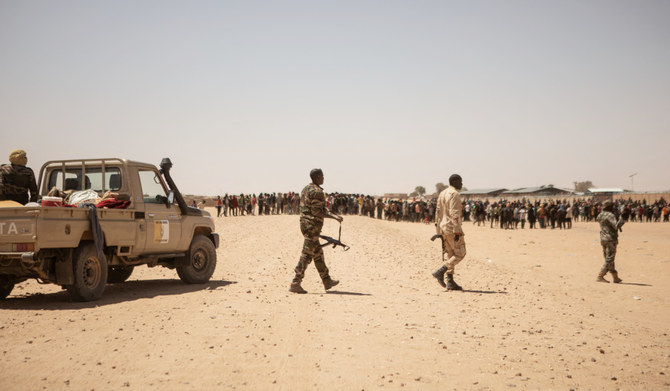
- US Defense Secretary Lloyd Austin indicated on Thursday that Russian troops were now installed at a Nigerien air base near the Niamey airport that also houses US troops
NIAMEY: New Russian military advisers and military equipment have arrived in Niger, according to state television in the African country that wants US forces to leave.
A first set of about 100 Russian advisers arrived in Niger on April 10, along with air defense systems.
Two military transporters arrived on Saturday, according to Tele Sahel that said Russia has now sent three cargo planes of military material and instructors in the past month.
The Africa Corps, seen as the successors of the Wagner paramilitary group in Africa, confirmed the instructors’ arrival in a posting on the group’s Telegram account.
FASTFACT
US Defense Secretary Lloyd Austin indicated that Russian troops were now installed at an air base near the Niamey airport that also houses US troops.
On Saturday, it said more trainers, equipment, and food products had arrived.
US Defense Secretary Lloyd Austin indicated on Thursday that Russian troops were now installed at a Nigerien air base near the Niamey airport that also houses US troops.
Niger’s military regime, which took power in a July 2023 coup, expelled French troops based in the country and then denounced a military cooperation agreement with the US.
It said this had been “unilaterally imposed” by Washington.
Washington agreed in April to withdraw roughly 1,000 soldiers from the country.
Negotiations are underway between the United States and Niger about the withdrawal.
US forces have a key drone base near Agadez, built at a cost of about $100 million.
Niger’s military leaders have moved closer to Russia, as have Mali and Burkina Faso, which also have military coup leaders and are fighting rebel groups affiliated with Al-Qaeda and Daesh.
In April, Idrissa Soumana Maiga, head of the private L’Enqueteur newspaper, was imprisoned after an article mentioned the “presumed” installation of Russian listening devices in official buildings.
Race against time to rescue Brazil flood victims after dozens killed

- The rainfall eased Saturday night but was expected to continue for the next 24-36 hours, with authorities warning of landslides
PORTO ALEGRE, Brazil: Authorities were racing against time on Sunday to rescue people from raging floods and mudslides that have killed more than 50 and forced nearly 70,000 to flee their homes in southern Brazil.
Viewed from the air, Porto Alegre, the capital of Rio Grande do Sul state, is completely flooded, with streets waterlogged and the roofs of some houses barely visible.
The Guaiba River, which flows through the city of 1.4 million people, reached a record high level of 5.09 meters, according to the local municipality, well above the historic peak of 4.76 meters that had stood as a record since devastating 1941 floods.
The water was still advancing into economically important Porto Alegre and around a hundred other localities, with increasingly dramatic consequences.
FASTFACT
The Guaiba River, which flows through the city of 1.4 million people, reached a record high level of 5.09 meters, according to the local municipality, well above the historic peak of 4.76 meters that had stood as a record since devastating 1941 floods.
In addition to some 70,000 residents forced from their homes, Brazil’s civil defense agency also said more than a million people lacked access to potable water amid the flooding, describing the damage as incalculable.
The agency put the death toll at 55, although that did not include two people killed in an explosion at a flooded gas station in Porto Alegre that was witnessed by an AFP journalist.
At least 74 people are also missing, it said.
Rosana Custodio, a 37-year-old nurse, fled her flooded Porto Alegre home with her husband and three children.
“During the night on Thursday the waters began to rise very quickly,” she told AFP via a WhatsApp message.
“In a hurry, we went out to look for a safer place. But we couldn’t walk … My husband put our two little ones in a kayak and rowed with a bamboo. My son and I swam to the end of the street,” she said.
Her family was safe but “we’ve lost everything we had.”
The rainfall eased Saturday night but was expected to continue for the next 24-36 hours, with authorities warning of landslides.
Authorities scrambled to evacuate swamped neighborhoods as rescue workers used four-wheel-drive vehicles — and even jet skis — to maneuver through waist-deep water in search of the stranded.
UK Labour official acknowledges electoral backlash over Gaza

- Analysis shows decline of nearly 18 percent in Labour vote in areas where over a fifth of the population are Muslim
LONDON: A senior Labour official on Sunday said the party has to recalibrate its campaigning strategy to win back voters opposing its position on Gaza, The Observer reported.
Pat McFadden, Labour’s national election coordinator, told the BBC program “Sunday with Laura Kuenssberg” that it would “work to get people’s support back,” and that the Middle East is a “high foreign policy priority” for the party.
Analysis has revealed that despite substantial gains in Thursday’s local elections in England, as well as Sadiq Khan securing a third term as mayor of London, there was a decline of nearly 18 percent in the Labour vote in areas of the country where over a fifth of the population identify as Muslim.
The analysis, conducted across 930 wards by Prof. Will Jennings from the University of Southampton, highlighted the extent of the protest vote against Labour leader Keir Starmer’s stance on Gaza, particularly his delay in calling for a ceasefire.
Ali Milani, chair of the Labour Muslim Network, voiced concern over the sense of betrayal within the Muslim community.
“We are now seeing the electoral consequence of that,” Milani told The Obsever. “If I was a Labour MP in Bradford or Birmingham or Leicester or parts of London or Manchester, I would be seriously concerned.”
Jennings said: “What this highlights is certainly that Labour is in an uncomfortable position on Gaza. And it is not just Muslim voters.
“But in a general election when we are looking at an anti-incumbent mood and there are fewer small parties and independents, we shouldn’t expect the pattern to be repeated.”
Labour MP Ellie Reeves said: “We have recognized the strength of feeling on this issue. We have called for an immediate ceasefire, we have also said there should absolutely be no ground offensive on Rafah.”
When questioned about Labour’s previous stance on the war, she told The Observer: “Keir Starmer has always been clear that our position would always respond to what is happening there.”



